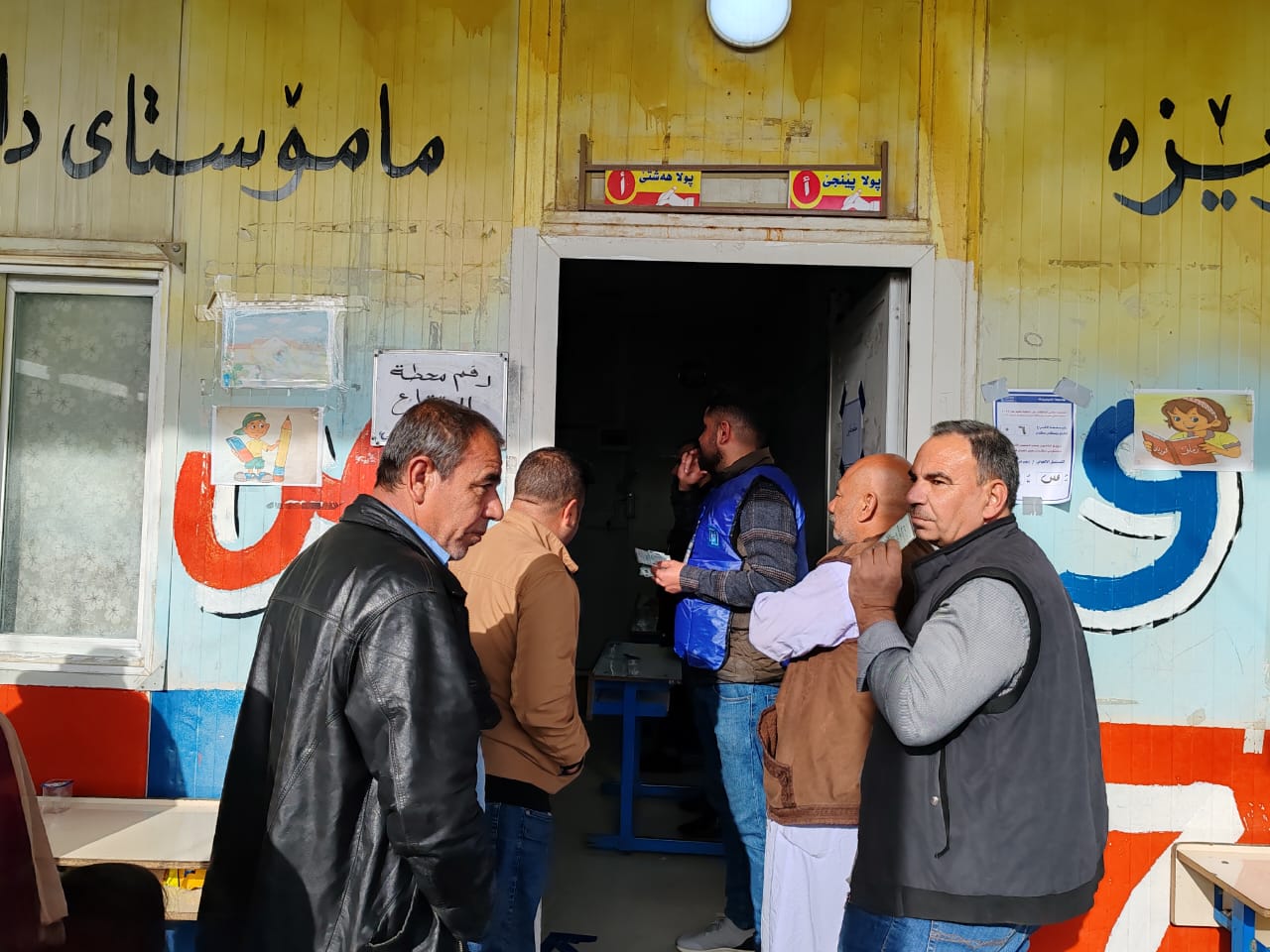Thousands members of the Iraqi Security Forces ISF and the Internally Displaced Persons IDPs did not have their names included in the voter registers, which prevented them from participating in the special ballot for the Iraqi provincial council elections. Another section of them were deprived of voting due to problems related to fingerprint scanning problem.
The special voting process began at 7 a.m. (Baghdad time GMT+3) on Saturday, December 16, 2023, and continued until 6 p.m. to select members of the councils of 15 Iraqi governorates, and the public vote is scheduled to take place on Monday, December 18.
The new elected council will appoint governors, a forecast for the parliamentary election due to take place in 2025. The early vote was restricted to military and security personnel and internally displaced people living in camps, while the main polling set to take place on Monday. Results are expected to be announced Tuesday.
According to statistics from the Independent High Electoral Commission IHEC in Iraq, 1,002,393 people were entitled to participate in the special ballot, which is equivalent to more than 6 percent of the total 16,158,000 voters,
About 48,260 IDPs were entitled to participate in the special vote, all of them residing in the camps of the Iraqi Kurdistan Region IKR, at 120 polling stations in 35 electoral centers.
According to the monitoring of the website (KirkukNow), which covered the voting process in the governorates of Nineveh, Kirkuk, Salah al-Din, Diyala, and Dohuk, the most prominent problems facing voters were the failure to scan fingerprints automatically and the non-representation of the names of a section of voters in the IHEC records.
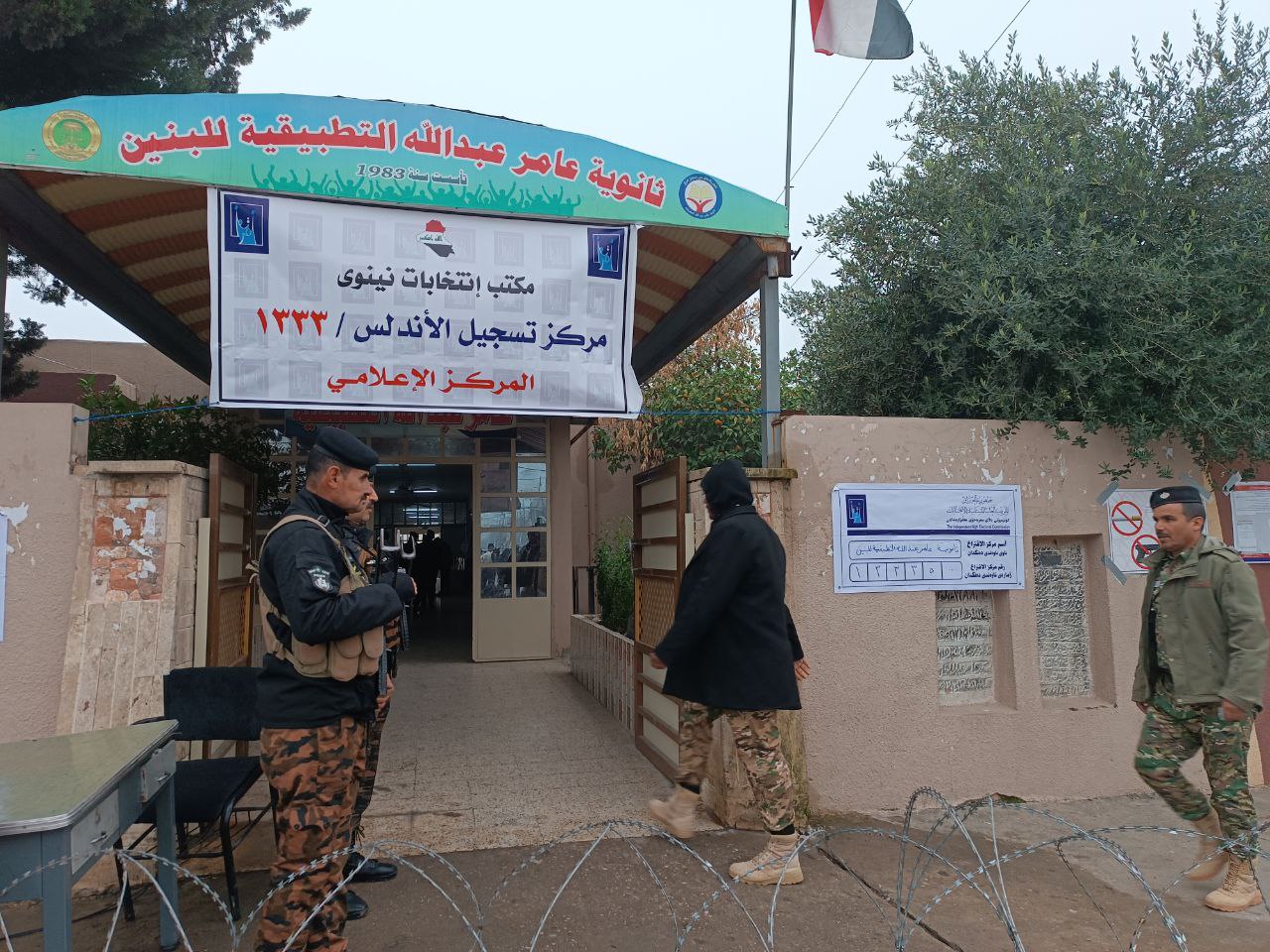
A special polling center in Mosul, Nineveh, December 16, 2023. Ahmed Bulla
Khalat Suleiman, a displaced person residing in Cham Mishko camp in Northern Dohuk Governorate, said that “more than a thousand voters whose names are not in the voter registers,” and must return to original area and participate in the general vote, “but it is difficult for the displaced people to be able to return to Shingal (Sinjar) to cast their votes."
In the Dohuk camps alone, about 40,000 displaced people were entitled to vote, most of them from Nineveh, especially the non-Muslim Ezidis (Yazidis) of Shingal. According to the provincial council elections law, displaced voters from Shingal district, whether they reside inside or outside the camps, can vote directly for their original district without the need to return.
But for those displaced from other areas, only those residing inside the camps can vote directly for their original constituencies in the camps, while others must return to their areas to participate in the general vote.
Ghazali Hussein, an elderly displaced woman in Sharia camp, was barely able to cast her vote because the fingerprint reader was not working well.
“After several attempts and after cleaning my fingertips, the device recognized my fingerprint and I was able to cast my vote.” she told (KirkukNow) that a several members of her family were not registered, and were asked to vote in Shingal on the day of general voting.
According to the observations of (KirkukNow) correspondents, most of the camps faced the problem of not having the names of some of the displaced people in the voter registers, given that some of the displaced people obtained permits to return to their areas, so their voting place was moved to Shingal.
There are no camps for the displaced in the governorates of Iraq, except the IKR where 600,000 displaced people reside, part of them are distributed among 26 camps and the rest out of the camps. The IDPs have escaped the atoricities by the extremist militants of the so-called Islamic State of Iraq and Syria ISIS ten years ago yet still live under tents as the government failed to recontruct their towns and provide proper public utilities.
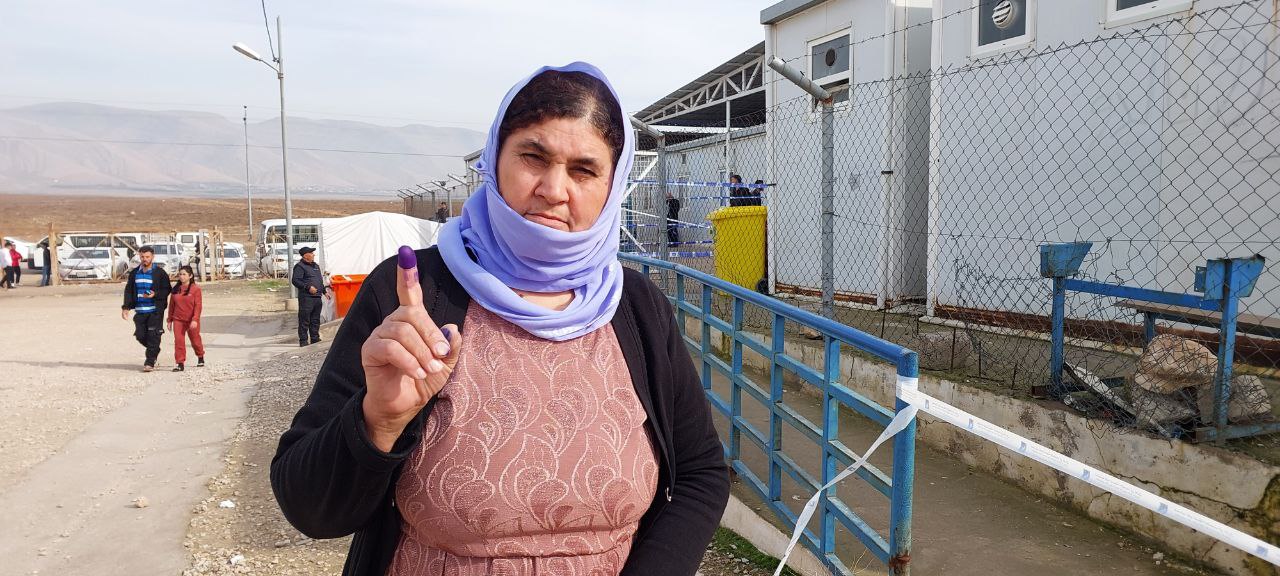
Khaled Abbas, director of the IHEC office in Dohuk, told KirkukNow that they rely on the records of the Iraqi Ministry of Immigration and Displacement to prepare records of displaced voters, so people whose names are not mentioned here must return to their hometowns on the day of general voting.
He explained that voters who suffer from chronic diseases, such as hypertension and diabetes, did not have their fingerprints read by the devices due to the large number of needle marks on their fingers, and as a result they were prevented from participating in the elections. Abbas affirmed they do not have accurate statistics regarding this case, but he said that the number was close to 100 people.
Security and military forces in most areas, like the displaced, suffered from problems related to reading fingerprints and voter records. According to Nour, a local organization monitoring the elections, hundreds of voters were deprived of voting in two polling centers in Sulaymaniyah.
In the IKR, more than 53,000 members of the ISF were entitled to participate in the special ballot for the provincial council elections, according to the IHEC.
The number of voters in the Kirkuk vote was 57,330 people in 26 electoral centers consisting of 135 polling stations, where the turnout hit 70 percent, IHEC says.
Kirkuk Now's correspondent in Daquq district of Kirkuk province, quoting a number of voters participating in the special vote, indicated that some of them, who are residents of the district, did not have their names registered in the records. It turned out they are registered in Diyala and Salah al-Din governorates.
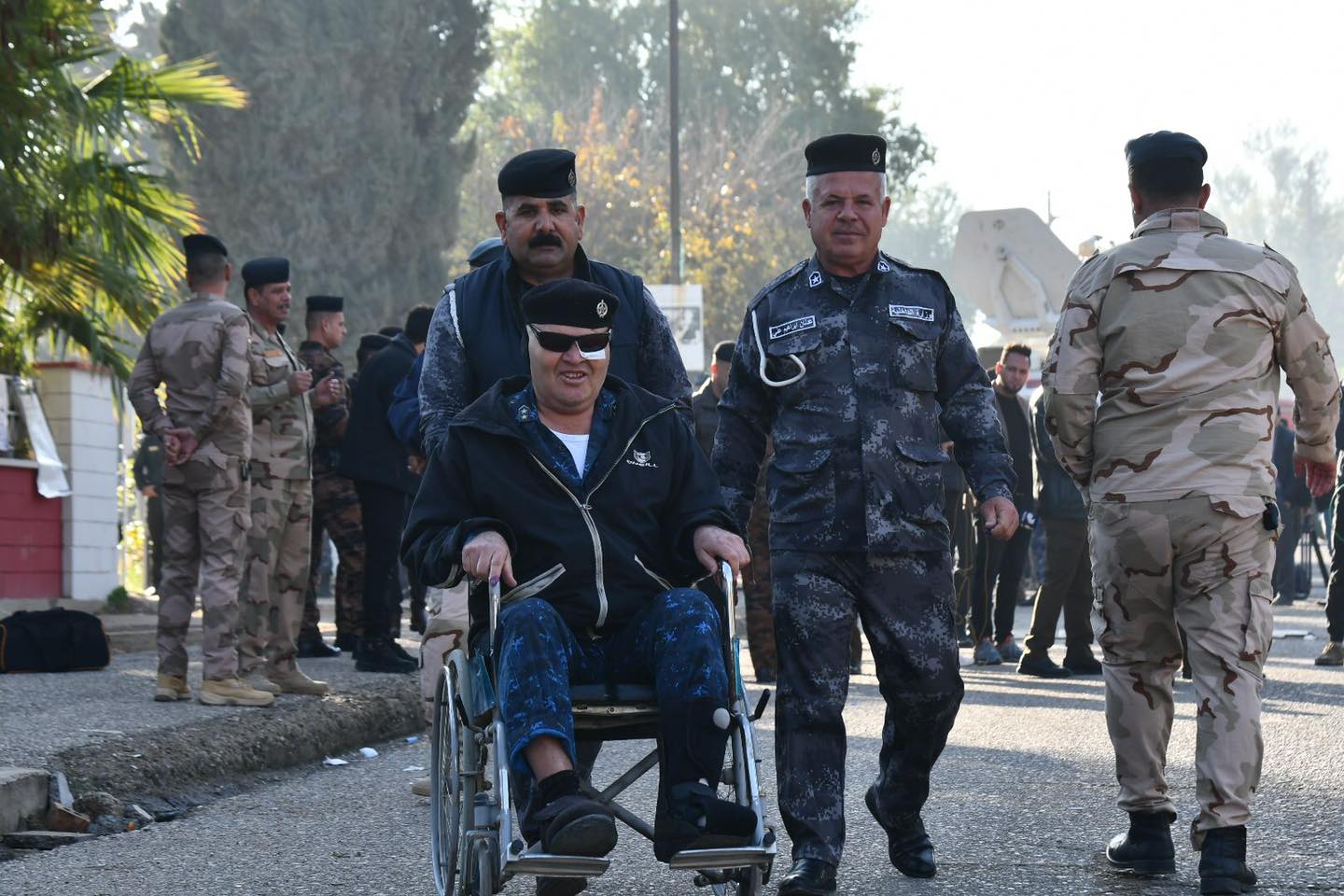
A member of the security forces in a wheelchair participates in voting, Kirkuk, December 16, 2023. Media of Kirkuk Police Command.
Despite the relatively high turnout in Saturday's polling, concerns were raised about a low voter turnout in the long-awaited polls on Monday in the country's 15 provinces, excluding the IKR.
Hussein Abdel-Sada, a member of the National Office of the IHEC and supervisor of the elections in Kirkuk, told the semi-official Al-Iraqiya channel that no complaints had been recorded in the governorate affecting the conduct of the process, nor had any violations been recorded.
In Nineveh Governorate, the number of voters affiliated with the security forces reached 99,726 people, who cast their votes through 234 polling stations in 49 electoral centers.
The spokesman for the IHEC office in Nineveh, Sufyan al-Mashhadani, told KirkukNow that 75 percent of voters participated in voting, equivalent to 75,000 voters.
In Salah al-Din, the number of voters reached more than 67,000 voters and the participation rate reached 76 percent, while in Diyala the number of voters was 57,000 people and the participation rate reached 78%.
In the Khanaqin district of Diyala Governorate, journalists were prevented from media coverage as the IHEC has not appointed any electoral center for media coverage in the district.
Salam Mahdi, head of the media department at the Diyaa office of IHEC, told (KirkukNow), “In Diyala, only two electoral centers have been identified for media coverage, which are in Baqubah and Sharban,” but he explained that the media will be able to cover the electoral process in five electoral centers in Diyala during the general vote, one of them will be in Khanaqin.
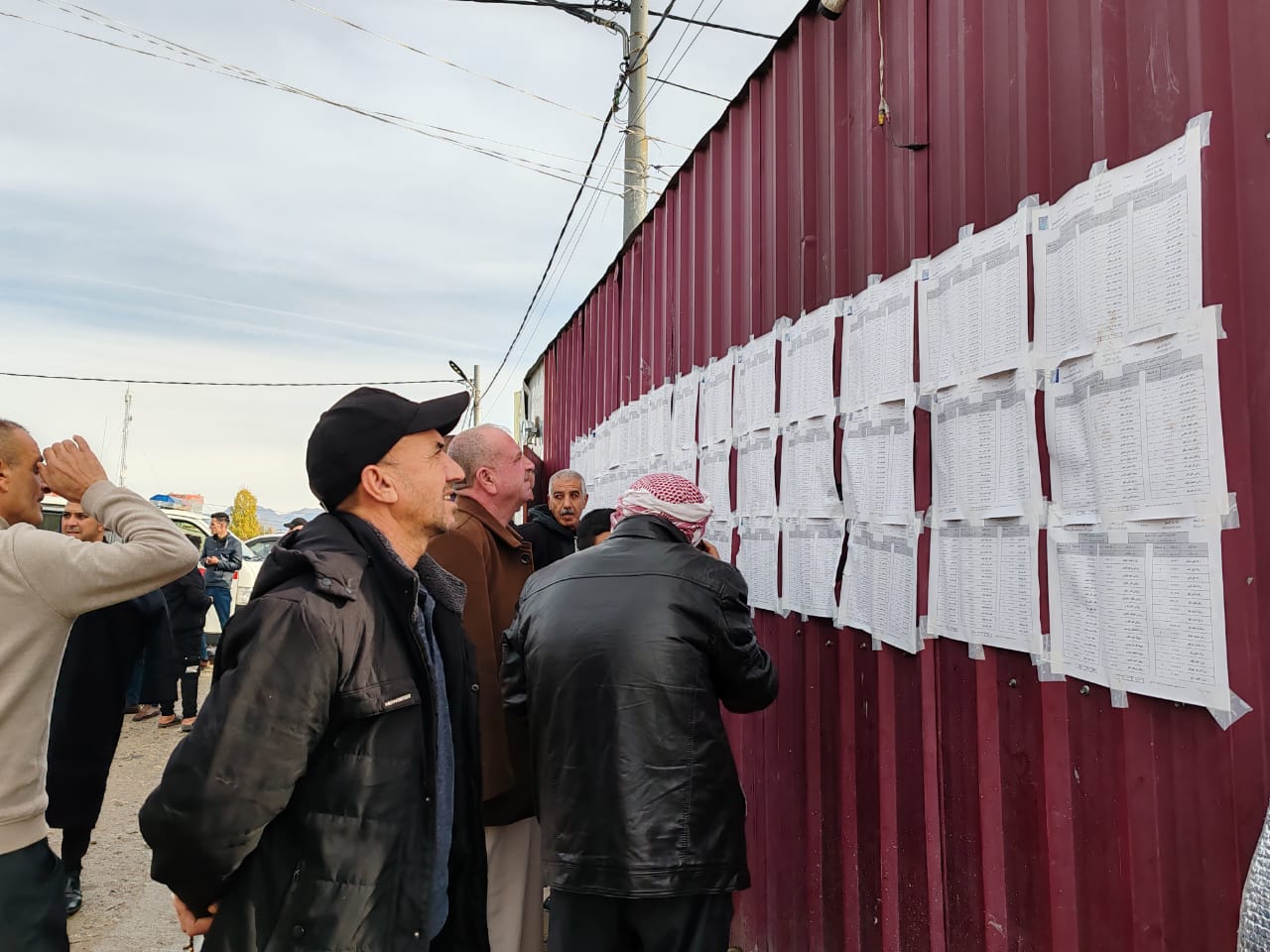
This comes at a time when the Journalists’ Rights Law in Iraq stipulates that journalists have freedom of work and the right to be present in all conferences and public meetings to perform their professional duty.
The electronic voting counting machines stopped at 6 pm to transmit the results to the headquarters of the IHEC in Baghdad, and according to the law, the votes must be counted manually inside the electoral centers before transporting the ballot boxes.
The process of counting and sorting the votes takes place with the participation and monitoring of more than a million polling station employees, local and international observers, representatives of the political parties and lists, and journalists. According to the Commission’s statistics, more than 700,000 people cast their votes in the special ballot, with a participation rate of 67 percent.
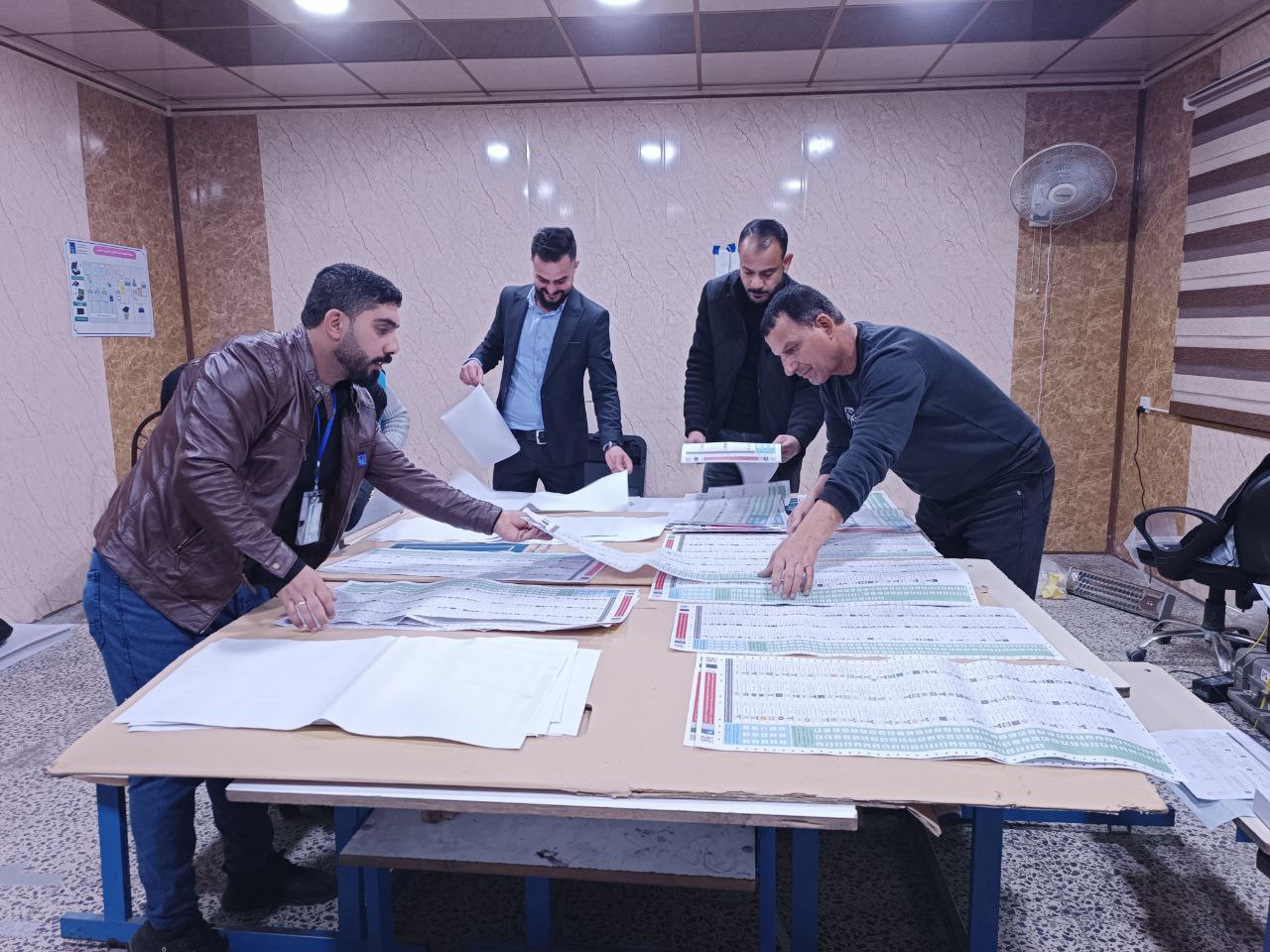
Lieutenant General Qais Al-Mohammadawi, Chairman of the Election Security Committee, stressed in a press conference held on Saturday, December 16, that “transporting the memory stick will be a first priority because it contains all the data, and there are no remote areas where the ballot boxes would require transport by plane.”
“The transfer of the memory stick by public vote will be via army aviation and air force from the provinces to Baghdad.”
He explained that there is no special vote in the IKR for the Kurdish Peshmerga forces, and preparations are currently being made for a larger mission, which is to protect and manage the security for the general vote on December 18, 2023.
The Iraqi provincial council elections have not been held since 2013, and Kirkuk Governorate participated in them only once in 2005. Out of 5,900 candidates for the councils of 15 Iraqi provinces, 285 representatives will be elected, including 10 quota seats allocated to Christians, Sabean Mandaeans, Faili Kurds, Shabak and the Ezidis.

